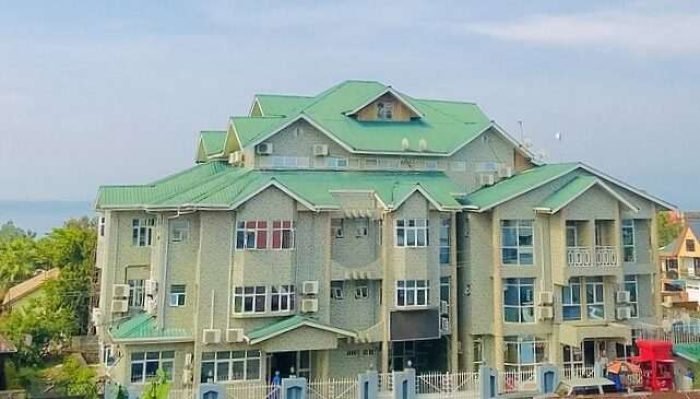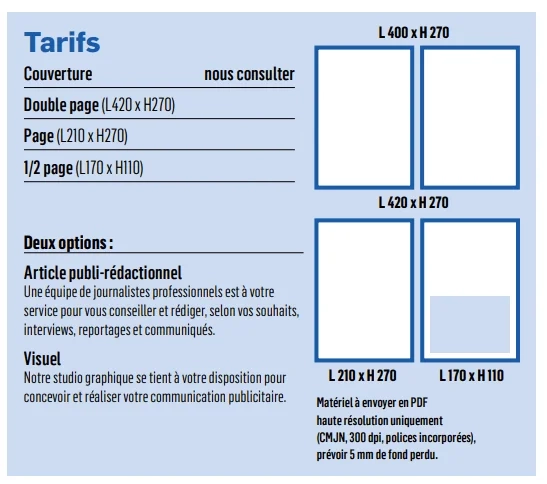Space not available
The file format is not recognized
Reserve this advertising space
Post an ad : banner or video
press release, interview, sponsorship
Choose this advertising space
and click here to transmit
an announcement file
Your ad in pop-up format
Choose this advertising space
and click here to transmit
an announcement file
a file
or
Transmit here
a file
– The private health sector

A major player in public health, the private sector represented 46% of the 469 hospital structures, or 44% of outpatient care and 25% of hospital care in the DRC in 2017.
Space not available
The file format is not recognized
Reserve this advertising space
Post an ad : banner or video
press release, interview, sponsorship
Choose this advertising space
and click here to transmit
an announcement file
Your ad in pop-up format
Choose this advertising space
and click here to transmit
an announcement file
a file
or
Transmit here
a file
The private sector is subdivided into three categories: private for-profit, private not-for-profit (health services provided by non-governmental organizations and faith-based organizations), and traditional medicine. The pharmaceutical sector is primarily private. The private for-profit sector is particularly flourishing in urban areas and economic hubs. It consists of medical and paramedical practices, clinics or polyclinics, and diagnostic centers (laboratories, imaging). Opening permits are granted by the Ministry of Public Health, while the opening application is approved by the province. Texts clarifying the responsibilities of the central government and those of the provinces in this area are still lacking.
The private faith-based and non-profit sector has been present in the DRC since the colonial era and represents approximately 40% of healthcare provision (Health Sector Overview, 2010). The main actors are the Catholic, Protestant, Kimbanguist, and Salvationist churches, which manage health facilities such as hospitals and health centers. Background work was carried out on the analysis of the impact of the private sector. The objectives of this study were to provide an estimate of the size, scope, and extent of the private health sector, focusing on the main stakeholders and their roles; an overview of the types of health services and products offered by the private sector, with a particular focus on family planning and maternal and child health; baseline data and lessons learned from the experiences of comparable low-income countries; and an overview of the policies, market conditions, and business needs that hinder or promote private sector participation in the health system. This study determined strategic priorities and a "roadmap for action" over a three-year horizon.
It is also worth mentioning that today, cities in the DRC are subject to unplanned, rampant urbanization and spectacular population growth. This calls for work on adapting the way health services are organized in urban areas, taking into account their specific characteristics.
On August 2, 2022, the government signed a memorandum of understanding with the Central Coordination Office (BCECO) to collaborate on the construction of 1,000 community health centers across the country. The project will take five years to bring healthcare services closer to the grassroots population. By the end of December 2022, 104 health centers will be built across the country.
Space not available
The file format is not recognized
Reserve this advertising space
Post an ad : banner or video
press release, interview, sponsorship
Choose this advertising space
and click here to transmit
an announcement file
Your ad in pop-up format
Choose this advertising space
and click here to transmit
an announcement file
a file
or
Transmit here
a file
The Panzi Hospital of Nobel Prize winner Dr. Denis Mukwege
Dr. Denis Mukwege is the founder of Panzi General Hospital near Lake Kivu in the Democratic Republic of Congo (DRC). From 1999 to 2022, the hospital treated more than 70,000 survivors of violence and more than 50,000 patients with gynecological conditions. The hospital was initially created to combat maternal mortality. Currently, with 450 beds, Panzi General Hospital represents a benchmark for the health sector in the city of Bukavu. Through its missions of care, prevention, teaching, and research, it is a place of excellence in medicine. It offers all standard and specialized disciplines and has multidisciplinary technical platforms that meet the most advanced medical requirements.
Space not available
The file format is not recognized
Reserve this advertising space
Post an ad : banner or video
press release, interview, sponsorship
Choose this advertising space
and click here to transmit
an announcement file
Your ad in pop-up format
Choose this advertising space
and click here to transmit
an announcement file
a file
or
Transmit here
a file
















 A Seat That Transforms into a Bed
A Seat That Transforms into a Bed  In the world of air travel, economy class is often considered the most affordable option. However, at Air Afrika, we believe that affordability shouldn't mean compromising on quality of service. Our class
In the world of air travel, economy class is often considered the most affordable option. However, at Air Afrika, we believe that affordability shouldn't mean compromising on quality of service. Our class











